A people sidelined by its politicians
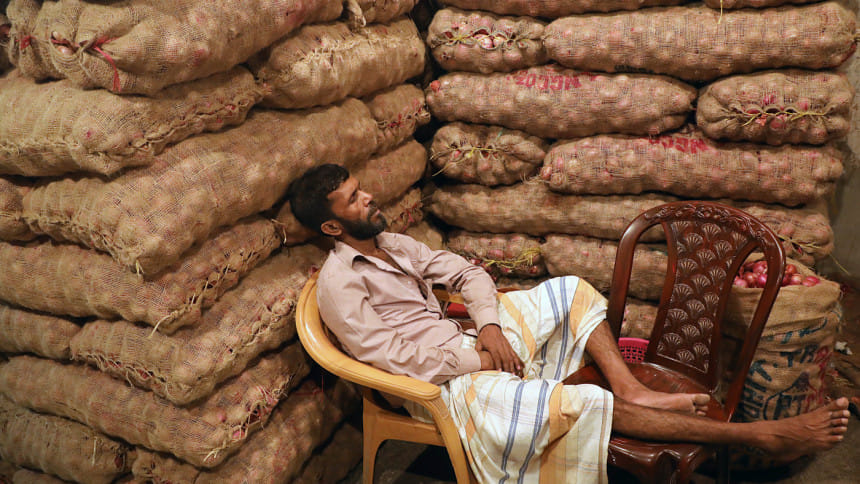
The lists of dengue infections and deaths are only getting longer, and nobody can tell if, or when, the situation will get better. The prices of daily essentials continue to skyrocket, with the price of eggs, the go-to protein for the poor, now equal to that of a kilogram of broiler chicken. Meanwhile, more than 50 people were killed in the floods in Chattogram and the Chittagong Hill Tracts area in recent weeks.
In all of this, it is the common people (or in the context of the upcoming national election, the voters) who are the worst sufferers. But the politicians seem to be blissfully oblivious to the plight of their electorate. There is no denying that the country is headed towards its next parliamentary election with the two major political parties harbouring opposite stances regarding the election itself. Of course, a free, fair, and inclusive election is necessary for a better society and stronger democracy. But when people are suffering the most, when they are dying because of poor governance, how can the political parties focus on only the physical exercise of the election and how it will play out in about four months? Shouldn't their focus be on how best to serve the people now? Shouldn't they be concerned about the welfare of the poorest of society? Shouldn't our politicians be working to win the hearts and minds of the people, instead of engaging in political power play with their archrivals?
Ideally, and historically, people get into politics for the welfare of their people. But it appears from recent political machinations that the people have been conveniently forgotten or even sidelined in the game of politics. When one political party says that the country's people are with it, and the other party claims that it represents the people, I can't help but wonder who it is that is actually representing me, or has my interests at heart.
Bangladeshi politics is going through a critical phase. The fact is that politicians have lost control over politics in general, which appears to have been hijacked by corporate interests – given the representation of businessmen and former bureaucrats in the parliament. Currently, around 62 percent of lawmakers are from the business sector. The government's dependency on the administration has increased. And none but the politicians have brought this upon themselves, in their pursuit of shortcuts and expediency. When career politicians become weak, so does politics. And when the people are sidelined, politics – so far as it is concerned with maintaining democracy – becomes more fragile.
It is in this context that the exhortations of the diplomatic corps in Dhaka – India, China, the US, and the EU – about the supremacy of the people and how they hope that the people's wishes will be reflected in the outcome of the election, are both ironic and intriguing.
The two previous elections changed the nature of Bangladeshi people's participation in national politics. The 2014 election, which BNP had boycotted and which saw 153 lawmakers being elected uncontested, remains a rare example of a lopsided election. In the 2018 election, many people were denied the right to cast their votes, and allegations emerged of ballot-stuffing on the eve of elections, so much so that it was even mentioned by Awami League's alliance members. When politicians found that they could get elected even without votes, voters ceased to become a factor to consider when trying to win elections. In the past, candidates did have to woo voters, and win their hearts and minds to get their votes. But now, when a mere nomination all but guarantees victory for a candidate, the exercise of putting in effort to win voters has become all but cosmetic.
On the other hand, while the opposition can do little so far as actual measures are concerned – whether that relates to dengue or prices – it is their responsibility to hold the government accountable. It falls on the opposition to keep these issues alive so that the government cannot ignore them. One way to do that is in parliament, which has unfortunately lost its purpose since the official opposition is, by and large, an informal extension of the ruling party alliance. Meanwhile, the main opposition camp on the streets, BNP, is too obsessed with its one-point demand for a resignation of the ruling government than with the plight of the voters.
So now, whenever I hear calls for this or that "in the name of the people," and when political parties launch campaigns for the supposed sake of the people, it seems to me that those politicians are merely cementing their political careers using the name of the people. Is anyone actually thinking about the families of those 50 people who died in the floods? Or about the children who are going to bed hungry in Bangladesh even now? That one has to pose such questions in a column is perhaps an even bigger tragedy.
Mohammad Al-Masum Molla is chief reporter at The Daily Star.

 For all latest news, follow The Daily Star's Google News channel.
For all latest news, follow The Daily Star's Google News channel. 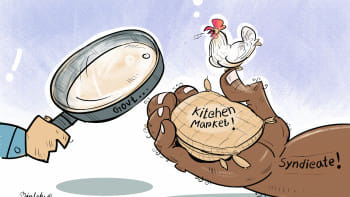
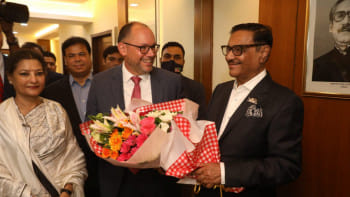
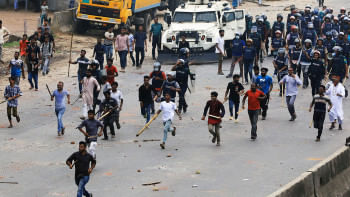



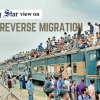

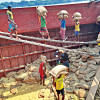



Comments